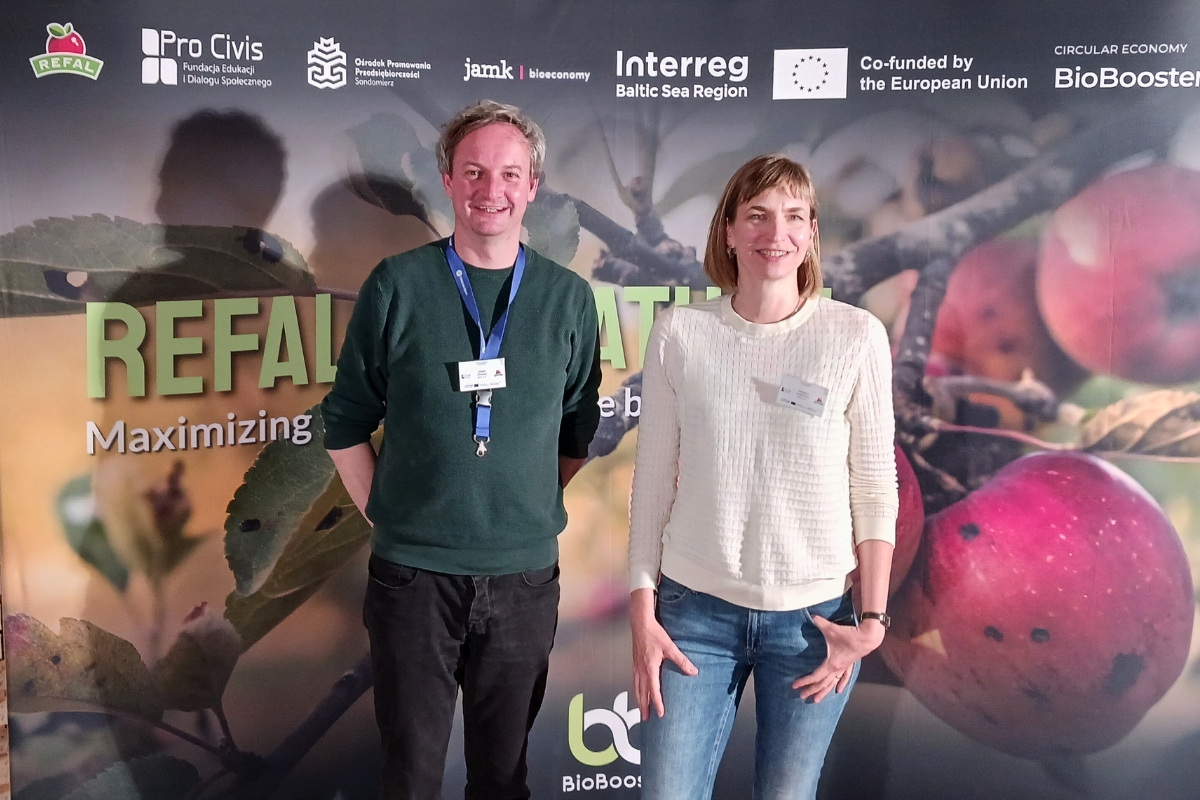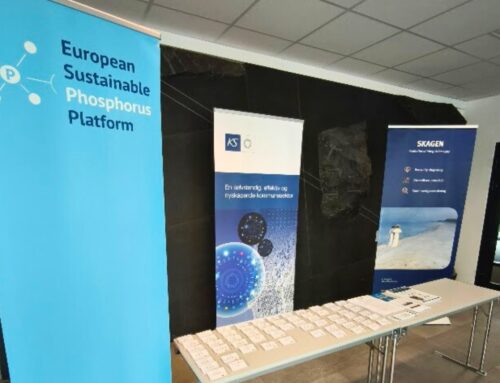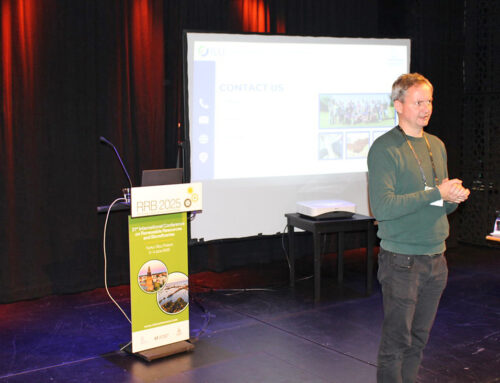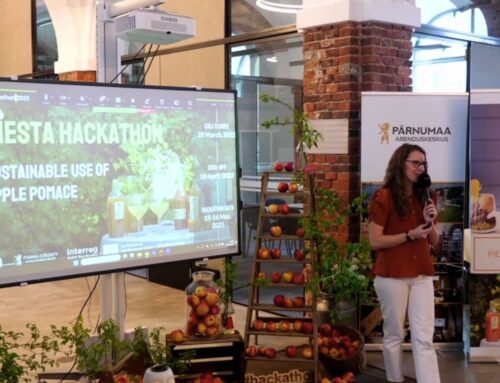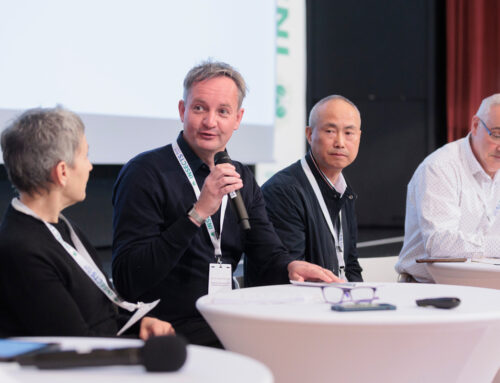From 24 to 25 April 2025, a hackathon focusing on “Maximizing the value of apple biomass” took place near Sandomierz in Poland. A hackathon is a competition of ideas to find creative solutions to given problems. The aim of the event was to develop innovative products and technological solutions to increase the value of apple biomass from weather-damaged fruit. Despite their great quality, these apples are not sold directly due to external defects.
The Hackathon 2025 offered participants the opportunity to launch a long-term business project with the REFAL Group – a producer organisation for fruit growers and farmers in the Sandomierz region – such as the joint development and implementation of new technologies or new production lines. In this way, up to 6,000,000 kg of apple biomass could be sustainably utilised each year.
ILU at Hackathon 2025: Repurposing apples – colour extraction using algae
The algae expert team from the Institute for Food and Environmental Research e.V. (ILU) in Bad Belzig impressed the audience with their presentation. Stephanie Schönfelder and Prof. Dr Daniel Pleissner presented a novel process in which the microalgae Galdieria sulphuraria is used to utilise apple biomass. The aim of the project is to install a demonstration plant for the extraction of phycocyanin, a sought-after blue dye of natural origin. REFAL and ILU are planning to further develop the innovative process as part of a joint research project and put it into practice.
The hackathon has once again shown how important institutions such as the ILU are in successfully transferring research results into practical applications.
- NewMat – New materials for chromatographic applications
- AutoPro – Automated cultivation process for microalgae
- CIPROMED – Circular and inclusive utilisation of alternative proteins in the mediterranean value chains
- AlgoWert – Development of a prototype for converting agricultural residues into animal feed using heterotrophic microalgae
- optiPBR – Sensor platform against contamination in microalgae plants
